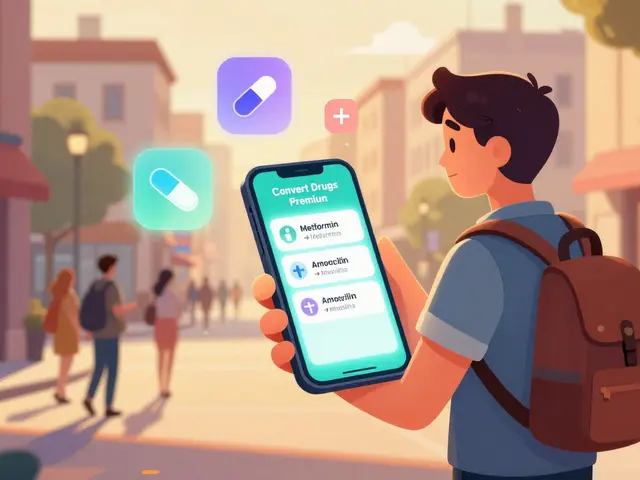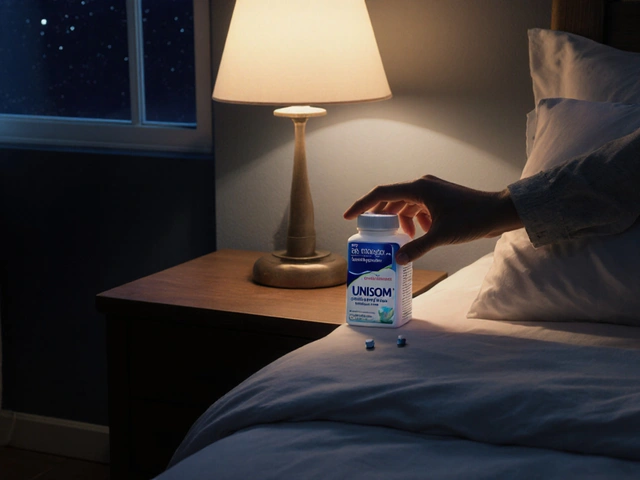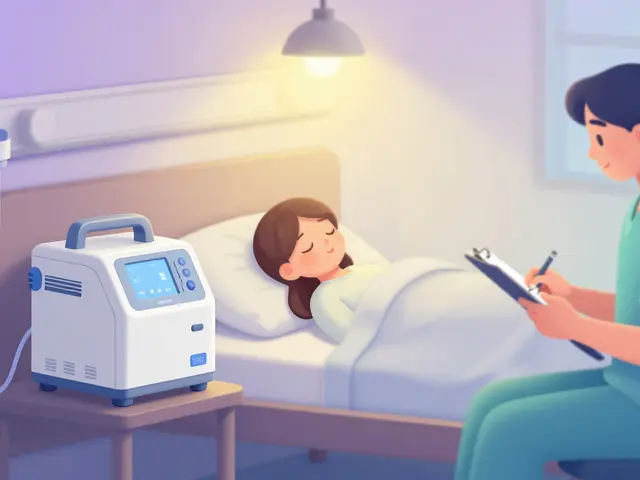How to Use Travel Apps to Find Pharmacies and Clinics Abroad
January 11 2026Menopause: what to expect and what actually helps
Menopause is a normal phase, not a disease. You might notice hot flashes, sleep trouble, mood swings, vaginal dryness, or weight changes. Symptoms vary a lot, both in type and in how long they last. This guide gives clear, practical steps you can use right away.
Symptoms and quick fixes
Hot flashes: wear layers, keep a fan nearby, avoid spicy foods and alcohol before bed. If flashes wake you at night, try a cooling pillow and breathable sheets. For severe flashes, ask your clinician about prescription options — low-dose hormone therapy often works fast.
Sleep problems: set a consistent sleep schedule, dim lights an hour before bed, and avoid screens. If anxiety or night sweats interfere with sleep, cognitive behavioral therapy for insomnia (CBT‑I) helps many women.
Vaginal dryness and pain with sex: over-the-counter water-based lubricants and regular non-hormonal moisturizers can make sex more comfortable. For persistent symptoms, low-dose vaginal estrogen applied locally is effective and uses much less hormone than systemic therapy.
Treatment options — what to know
Hormone therapy (HRT) reduces hot flashes, improves sleep, and helps prevent bone loss. Combined estrogen‑progestin is usually needed if you still have a uterus. Talk risks and benefits with your provider — risk varies by age, dose, and health history. Short-term use for bothersome symptoms is common; many women stop after a few years.
Non-hormonal medicines: some antidepressants (like certain SSRIs) and migraine medicines can lower hot flashes for people who can’t take hormones. Gabapentin and clonidine are other options. These are prescriptions, so review side effects and interactions with your clinician.
Bone health: menopause speeds bone loss. Weight-bearing exercise, daily calcium (about 1,000–1,200 mg depending on age and diet), and vitamin D (commonly 800–1,000 IU) support bones. Ask about a bone density test if you have risk factors or are over the age your clinician recommends.
Lifestyle changes matter. Aim for 150 minutes of moderate exercise per week and include strength training twice weekly to keep bones and muscles strong. Maintain a balanced diet, limit alcohol, and quit smoking — smoking worsens symptoms and raises health risks.
Mental health and relationships: mood swings and low libido are common. Talk openly with partners and doctors. Therapy, support groups, and certain medications can help mood and sexual function.
Supplements: some women try black cohosh, soy, or evening primrose oil. Evidence is mixed and quality varies between products. Always tell your clinician about supplements — they can interact with prescriptions.
When to see a doctor: if symptoms suddenly worsen, bleeding occurs after menopause, or you have severe sleep or mood problems, get medical advice. Also see a provider to review prevention strategies for heart disease and bone loss after menopause.
Each body responds differently. Keep notes on what helps and what doesn’t, and work with a clinician to build a plan that fits your life and risks. Small, steady changes often make the biggest difference.
 27 May
27 May
Premarin: Benefits, Risks, and Real-Life Guide for Hormone Therapy
Premarin is one of the most prescribed medications for women dealing with menopause symptoms. This article covers what Premarin is, how it works, its risks and benefits, and tips for managing side effects. You'll also learn facts rarely discussed and see whether it's the right fit for you or someone you know. Get real advice and current data for everyday women making big health decisions.
Read More... 21 May
21 May
Tibolone and Your Sex Life: Can It Improve Libido During Menopause?
I recently came across an interesting topic about Tibolone and its potential effects on our sex life during menopause. From what I gathered, Tibolone is a synthetic hormone that can help improve libido and reduce menopausal symptoms. Many women experience a decrease in sexual desire during this phase, and it seems that Tibolone could be a promising solution. However, it's important to consult with a healthcare professional before trying any new treatments. I'm excited to explore this topic further and share my findings with you all!
Read More...




